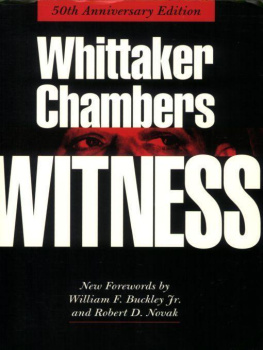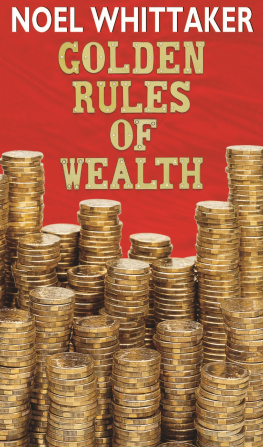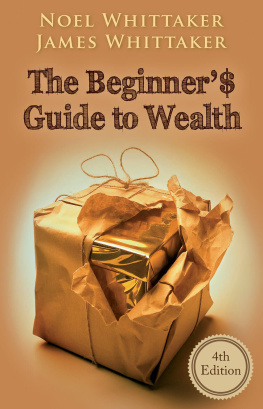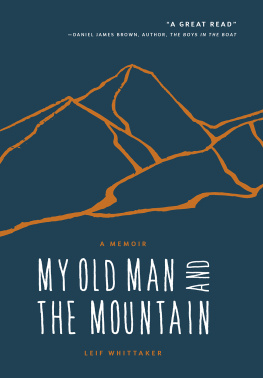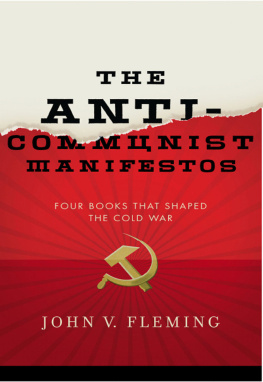Table of Contents
Copyright 1952 by Whittaker Chambers Copyright renewed 1980 by Esther Chambers
All rights reserved. No part of this publication may be reproduced or transmitted
in any form or by any means electronic or mechanical, including photocopy,
recording, or any information storage and retrieval system now known or to be
invented, without permission in writing from the publisher, except by a reviewer
who wishes to quote brief passages in connection with a review written for
inclusion in a magazine, newspaper, or broadcast.
William F. Buckley Jr.s Witness and Friend: Remembering Whittaker
Chambers (an edited version of Witness and Friend: Remembering Whittaker
Chambers on the Centennial of His Birth) is reprinted from National Review.
Copyright 2001 by National Review, Inc., 215 Lexington Avenue,
New York, NY 10016. Reprinted by permission.
ISBN: 0-89526-789-6
Published in the United States by
Gateway Editions
A Division of Regnery Publishing, Inc.
One Massachusetts Avenue, NW
Washington, DC 20001
Visit us at www.regnery.com
Distributed to the trade by
National Book Network
4720-A Boston Way
Lanham, MD 20706
Printed on acid-free paper
Manufactured in the United States of America
10 9 8 7 6 5 4 3 2
Books are available in quantity for promotional or premium use.
Write to Director of Special Sales, Regnery Publishing, Inc.,
One Massachusetts Avenue, NW, Washington, DC 20001,
for information on discounts and terms or call (202) 216-0600.
WITNESS AND FRIEND: REMEMBERING WHITTAKER CHAMBERS
by William F. Buckley Jr.
On July 9, 2001, the White House held a special ceremony to honor Whittaker Chambers on the fortieth anniversary of his death. At the private ceremony, held in the Old Executive Office Building, William F. Buckley Jr. recalled his friendship with Chambers.
I first met Whittaker Chambers in 1954. An almost total silence had closed in on him. Two years earlier he had published Witness. When the preface of Witness appeared as a feature in the Saturday Evening Post, that issue of the magazine sold a startling half million extra copies on the newsstand. The book came out with a great flurry. The bitterness of the Alger Hiss trial had not subsided. For some of the reviewers, Hisss innocence had once been a fixed rational conviction, then blind faith; and now, after the publication of that overwhelming book, rank superstition.
But the nature of the author was not grasped by the reviewers. I am a heavy man, Chambers once wrote me, apologizing for staying two days at my home. There is a sense in which that was true. But he never appreciated, as others could do, the true gaiety of his nature, the appeal of his mysterious humor, the instant communicability of an overwhelming personal tenderness; his friendsI think especially of Ralph de Toledanotook endless and articulate pleasure from his company.
Witness was off to a great start. But, surprisingly, it did not continue to sell in keeping with its spectacular send-off. The length of the book was forbidding; and the trial, in any case, was three years old, and the cold sweat had dried. Alger Hiss was in prison, and now the political furor centered about Senator McCarthy. Those who did not know the book, and who were not emotionally committed either to Chamberss guilt or to his innocence, seemed to shrink even from a vicarious involvement in the controversy, to a considerable extent because of the dark emanations that came from Chambers; depressing when reproduced, as was widely done, in bits and snatches torn from the narrative. Until reading Witness it had been my impression, Hugh Kenner, the author and critic, had written me, that his mind moved, or wallowed, in a setting of continuous apocalypse from which he derived gloomy satisfactions, of an immobilizing sort. The large scale of Witness makes things much clearer. It is surprisingly free from rhetoric, and it makes clear the genuine magnitude of the action which was his life; a Sophoclean tragedy in slow motion, years not hours.
In 1954 I asked if I might visit him. He had written to a longstanding friend, Henry Regnery, the publisher of my book on Senator McCarthy, to praise the book while making clear his critical differences with its subject. Chambers had been struck down by a heart attack and it was vaguely known that he spent his days in and out of a sickbed, from which the likelihood was that he would never again emerge physically whole. I had every reason to believe that I would be visiting Jeremiah lying alongside a beckoning tomb.
I was taken to his bedroom. The doctor had forbidden him even to raise his head. And yet he seemed the liveliest man I had ever met. I could not imagine such good humor from a very sick man, let alone anyone possessed by the conviction that night was closing in all over the world, privately tortured by his continuing fear that the forces aligned against him would contrive to reorder history, impose upon the world the ghastly lie that he had testified falsely against Alger Hiss, and so erase his witness, his expiation for more than ten years complicity with Communism.
We did not, of course, speak of Hiss, nor did we for several months; though later he spoke of him, and of the case, with candor. But we talked about everything else, and I. left Westminster later than I should have, hustled anxiously to the door by a wife who knew she was helpless absolutely to enforce the doctors rules.
As he began to recover he was, for a period, greatly renewed by a physical and spiritual energy that were dialectically at odds with his organic ill health and his intellectual commitment to the futility of all meliorative action in the Cold War. I talked with him about the magazine I proposed to publish and asked whether he would join the staff. To my astonishment the answer was yeshe would consider doing just that. We corresponded through the summer. He was to make up his mind definitely during the fall, after we visited again.
I made the mistake in one of my letters of expressing exorbitant hopes for the role National Review might play in political affairs. He dashed them down in a paragraph unmatched in the literature of supine gloom, sentences that President Reagan, who was in awe of their eloquence, and defiant of their fatalism, publicly recalled more than once. It is idle, he rebuked me, to talk about preventing the wreck of Western civilization. It is already a wreck from within. That is why we can hope to do little more now than snatch a fingernail of a saint from the rack or a handful of ashes from the faggots, and bury them secretly in a flowerpot against the day, ages hence, when a few men begin again to dare to believe that there was once something else, that something else is thinkable, and need some evidence of what it was, and the fortifying knowledge that there were those who, at the great nightfall, took loving thought to preserve the tokens of hope and truth.
The tokens of hope and truth were not to be preserved, he seemed to be saying, in a journal of opinion, not to be preserved by writers or thinkers. Only by activists, and I was to know that he considered a publicationthe right kind of publicationnot a word, but a deed. In the final analysis it was action, not belletrism, that moved him most deeply.
And so in time I came to understand why in 1932 he resigned as editor of the Communist New Masses, where he had earned an international reputation as a writer, to go scurrying about the streets of Washington, Baltimore, and New York, carrying pocketfuls of negatives and secret phone numbers and invisible ink. One of the great failures of Witness, he wrote me, is that there was no time or place to describe the influences, other than immediate historical influences, that brought me to Communism. I came to Communism ... above all under the influence of the Narodniki. They have been deliberately forgotten, but, in those days, Lenin urged us to revere the Narodnikithose who went with bomb or revolver against this or that individual monster. Unlike most Western Communists, who became Communists under the influence of the Social Democrats, I remained under the spiritual influence of the Narodniki long after I became a Marxist. In fact, I never threw it off. I never have. And, of course, it was that revolutionary quality [in me] that bemused Algermea culpa, mea maxima culpa.


